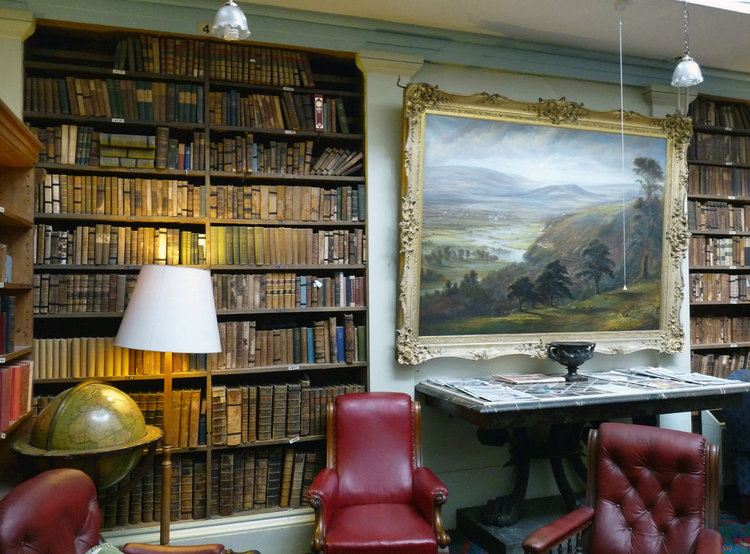The independent Libraries Association [ https://www.independentlibraries.co.uk/ ] was founded over thirty years ago in 1989 and since then has aimed to “further the conservation, restoration and public awareness of a little known but significant section of our cultural heritage”. There are currently thirty-six libraries who subscribe to the ILA and all are listed on their website. Many of them are subscription libraries and some provide other facilities such as a museum space, catering and adult education. They cover the United Kingdom and Ireland, and, together, possess over two million books inside many listed buildings.
The Financial Times has described them as “havens of books, conversation and cultural events with histories stretching back centuries”. As libraries are now slowly striving to return to some form of normality, here are five independent libraries that subscribe to the ILA and are situated in our south west region.
- Bath Royal Literary & Scientific Institution [ https://www.brlsi.org/ ]
The BRLSI was founded in 1824 and opened to members the following year. It provided a museum, library and reading room, lecture hall and botanical garden. The BRLSI moved to its present building in 1932 but fell rapidly into decline following the requisition of its’ building during World War Two. It was successfully relaunched in 1993.
The BRLSI’s antiquarian library contains over 7,000 volumes, notably the Jenyns and Broome natural history libraries. Other collections include local history, theology, travel and government. The Institution’s archives contain bound volumes of letters from eminent naturalists and scientists including Charles Darwin, Sir Joseph Hooker and Professor J.S. Henslow.

- Devon and Exeter Institution [ https://devonandexeterinstitution.org/ ]
The Institution occupies a medieval building, originally owned by Exeter Cathedral. In 1814 the Institution’s founding members took ownership and adapted the double-courtyard layout to create two Georgian rooms, each with a gallery and cupola. The building remains unchanged except for the installation of electric lights and gas-fired central heating.
The collection includes bound newspapers and periodicals, books, maps, prints, drawings, paintings, pamphlets and other ephemera from the early 19th century. Other collections relate to the history and topography of the West Country from the 16th century to the present day.

- Morrab Library [ https://morrablibrary.org.uk/ ]
The Morrab Library is the only independent library in Cornwall. It was built in 1841 as Morrab House and stands in three-and-a-half acres of the Morrab Gardens overlooking the sea. Since 1889 the house has been occupied by the Library as the tenant of the local authority.
The Library has more than 70,000 volumes including literature, history, biography, antiquities, religion, topography and travel. It has a Cornish collection including 3,000 books printed in the 16th, 17th and 18th centuries, and a photographic archive. It also holds the Dawson Collection of bound volumes of prints and engravings of Napoleon and his times.

- Plymouth Proprietary Library [ http://www.theppl.org.uk/ ]
The Proprietary Library is one of Plymouth’s oldest historic institutions, founded in 1810. It was originally situated in the centre of the city but suffered severe bomb damage in World War Two. It moved to a mid-Victorian house on North Hill after the war before relocating to the old church in St Barnabas Terrace in 2018.
The collection consists of 20,000 volumes ranging from 18th century literature to contemporary fiction and non-fiction. It also houses biographies, diaries and letters, travel, maps, local history and the Windham Collection of Royal Naval historical papers.

- Tavistock Subscription Library [ https://tavistocksubscriptionlibrary.co.uk/ ]
The Tavistock Subscription Library was founded in 1799 and settled permanently in the 1830s into rooms alongside and above the Court Gate, the entry point into the court of Tavistock Abbey. In the 1960s the Library was threatened with closure and sold off many of its’ books but the remaining collection was saved and housed in a small reading room alongside Court Gate. Here the Library remains.
The holding is restricted to works by local authors or those pertaining to the town and Dartmoor. The collection includes poetry from the 17th Century poet William Browne to the contemporary fifteen volumes of Gerry Woodcock’s Tavistock’s Yesterdays.
